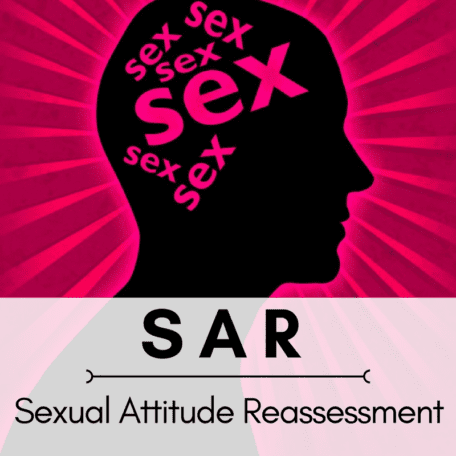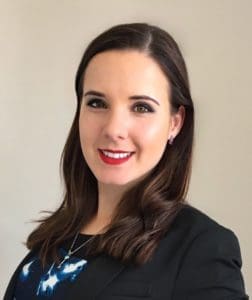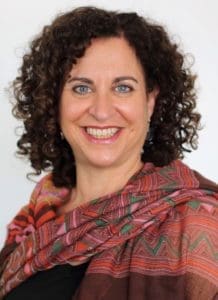Sexual Attitude Reassessment II – SAR II
SAR II: Wednesday, March 4, 2020
9:00 am – 3:00 pm

Council for Relationships – University City
4025 Chestnut Street First Floor
Philadelphia, PA 19104
$200 includes registration and APA certificate
$225 includes registration and AASECT certificate
5 CE Credits Available*
Workshop Description
The SAR is a process-oriented, planned group experience, which fosters therapist awareness, knowledge and comfort related to the sexuality of the self and others. Therapist values and attitudes are known to affect the quality of treatment. The SAR offers an opportunity for therapists to enhance awareness of their values and attitudes in order to better understand how their values and attitudes may affect the treatment they provide. Consequently, active participation in the SAR is an essential component of therapist training. The SAR is designed to promote understanding of attitudes, values, feelings and beliefs about the wide range of human sexual expression. Moreover, the SAR encourages a non-judgmental and respectful mindset toward others, especially those who differ from the therapist in attitudes, values, feelings, beliefs and sexual practices.
The SAR format includes didactic and explicit media presentations, experiential activities, and small group discussions led by competent facilitators. A qualified SAR leader directs the program. While there are many sexually explicit presentations throughout the SAR, no live nudity or sexual activity occurs. The participant engages in personal exploration designed to promote emotional, intellectual, spiritual and psychological growth. The ultimate outcome is acceptance and tolerance of human sexuality in all of its possible dimensions.
Learning Objectives
Upon completion of SAR II, participants will be able to:
-
- Indicate increased comfort when addressing and discussing a wide range of sexual topics related to the self and others.
- Describe how to promote non-judgmental and respectful attitudes toward others whose attitudes, values, feelings, beliefs and sexual behaviors differ from those of the SAR participant.
- Verbally express increased awareness of personal attitudes, values, feelings and beliefs about numerous aspects of sexuality.
- Discuss the connection between sexual knowledge and self-awareness about human sexuality.
- Articulate an understanding of the wide spectrum of human sexual arousal and behavior.
- Explain how participating in a SAR contributes to the ethical use of self as a therapist in the treatment setting.
- Discuss alternate sexual behaviors, tendencies and preferences (including but not limited to heterosexual, homosexual, pansexual, kink, fetish, BDSM, trans persons, etc.)
- Articulate feelings about topics of comfort and discomfort.
- Describe aspects of human sexual behavior and/or sexual expression that represent areas for further professional exploration.
- Assess and describe increased tolerance and acceptance of specific sexual practices.
References
Nazarpour S, Simbar M, Ramezani Tehrani F, Alavi Majd H. (2016). The impact of a sexual enhancement program on the sexual function of postmenopausal women. Climacteric, 19(5), 506-11. doi: 10.1080/13697137.2016.1219984.
Pillai-Friedman, S., Pollitt, J., & Castaldo, A. (2015). Becoming kink-aware — a necessity for sexuality professionals. Sexual and Relationship Therapy, 30(2), 196-210. doi: 10.1080/14681994.2014.975681
Rosser, B. R., Dwyer, S. M., Coleman, E., Miner, M., Metz, M., Robinson, B. E., & Bockting, W. O. (1995). Using sexually explicit material in adult sex education: An eighteen-year comparative analysis. Journal of Sex Education and Therapy, 21, 117–128.
Sitron, J. A., & Dyson, D. A. (2009). Sexuality Attitudes Reassessment (SAR): Historical and new considerations for measuring its effectiveness. American Journal of Sexuality Education, 4(2), 158-177.
Stayton, W. R. (1998). A curriculum for training professionals in human sexuality using the Sexual Attitude Restructuring (SAR) model. Journal of Sex Education and Therapy, 23, 26–32.
About the Presenters

Alishia Kalos, PsyD, CST is a licensed clinical psychologist and staff clinician at Council for Relationships who specializes in sex and relationship therapy. She is an AASECT Certified Sex Therapist and specializes in addressing sexual and relational concerns such as intimacy, communication, desire, arousal, satisfaction, pain, relationship contract negotiation, unusual sexual interests, and sexual behavior challenges. She also has specialized experience working with individuals/couples managing cancer, major health-related changes, or chronic illness.

Patricia Rich, LCSW, CST-S is an AASECT Certified Sex Therapist and Supervisor and also a Certified Internal Family Systems (IFS) Therapist. She completed IFS Levels 1, 2, and 3, served as a Program Assistant and offered IFS introductory classes and workshops. She founded The Relating Well Center, LLC, a relationship and sexuality focused private practice in the north suburbs of Philadelphia where she helps individuals and couples to deepen their relationships and increase sexual satisfaction. She enjoys finding creative ways to bring the wisdom of IFS together with the field of sex therapy for the benefit of clients and professionals. She has presented at national conferences and offers clinical supervision. Learn more at www.relatingwellcenter.com.
Workshop Details
Wednesday, March 4, 2020
9:00 am – 3:00 pm
Council for Relationships – University City
4025 Chestnut Street First Floor
Philadelphia, PA 19104
$200 includes registration and APA certificate
$225 includes registration and AASECT certificate
5 CE Credits Available

Council for Relationships is approved by the American Psychological Association to sponsor continuing education for psychologists. Council for Relationships maintains responsibility for this program and its content.
The Pennsylvania State Board of Social Workers, Marriage and Family Therapists, Professional Counselors and the New Jersey State Board of Marriage and Family Examiners accepts continuing education credits provided by APA-approved sponsors.
*This program meets the requirements of the American Association of Sexuality Educators, Counselors and Therapists (AASECT) and is approved for CE credits. These CE credits may be applied toward AASECT certification and renewal of certification. Completion of this program does not ensure or guarantee AASECT certification. For further information about certification, please contact info@aasect.org.
Council for Relationships staff and current students: visit your password-protected page for information regarding staff and student rates. Please contact Tiffani Smoot, Academic Administrator for alumni rate and questions.
